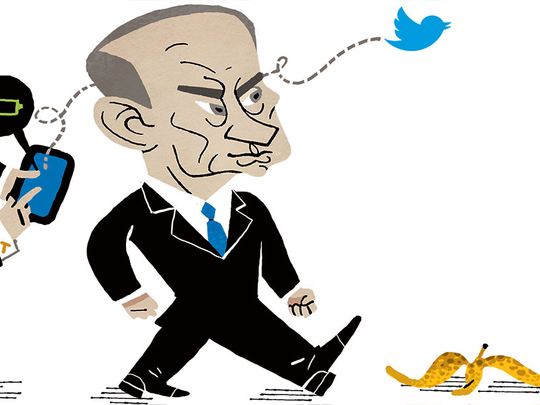
Russian President Vladimir Putin is probably still smirking about the chaos created by United States President Donald Trump’s European tour, which has led thoughtful people on both sides of the Atlantic to conclude that not just Nato, but the whole post-Second World War liberal order led by the US is doomed.
They may be proved righ, but I suspect that before they are, Putin, too, will come to regret the Helsinki summit. More than likely, it has torpedoed the Russian president’s chances of extracting practical benefits from Trump’s fervent attempt to court him — favours Putin badly needs.
We still don’t know all that Putin and Trump discussed during their two hours alone — but that is part of Putin’s problem. He evidently got Trump to nod along to the preposterous idea that Russian investigators should be allowed to observe interrogations of present and former senior US officials on bogus political charges. So we can assume Trump swallowed a few other hooks on Syria or Ukraine or nuclear weapons.
Trouble is, those “important verbal agreements”, as Russia’s ambassador in Washington called them, are vulnerable to the same fate as the universally denounced investigation proposal. As Putin acknowledged in a speech last Thursday, “powerful forces” oppose his deals with Trump. On Russia, Trump is a minority of one within his own government — and it is his minions, not the president, who will be charged with following up on those supposed deals.
What’s coming could be intuited from the US State Department’s icy description of the summit. At her daily briefing last Wednesday, department spokeswoman Heather Nauert began by condemning Putin’s proposal to investigate US officials — which Trump had called “an incredible offer” — as “absolutely absurd”. Then she described the “takeaways” of Helsinki as the creation of three discussion groups among US and Russian business executives, political scientists and the two national security councils. In other words, next to nothing. “These are certainly all modest proposals,” she said.
Trump will continue to tweet, and he has invited Putin to Washington this fall. But if the Russians think there was a breakthrough on nuclear weapons, they’ll have to explain it to John Bolton, Trump’s National Security Adviser and one of Washington’s foremost opponents of arms control. If they think Trump agreed to Putin’s plan for Syria, they will have to tell it to US Secretary of State Mike Pompeo and US Defence Secretary Jim Mattis, both of whom have repeatedly condemned Russia’s intervention.
Putin may check in with North Korea’s Kim Jong-un, who must have thought he had got everything he wanted from Trump during their Singapore summit last month. After Pompeo appeared for follow-up talks three weeks later, Pyongyang was left sputtering about “one-sided and robber-like” demands.
This is not to suggest Trump is pursuing a cleverly two-faced strategy designed to extract the maximum from Putin and Kim. Rather, in his ignorance and naive zeal to strike deals with strongmen, he is making actual accords impossible. In the case of North Korea, that’s bad for the United States, which is trying to alter the unacceptable status quo of the North’s possession of nuclear weapons. In the case of Russia, the big loser is likely to be Putin, who needs American help to escape the quagmires of Syria and Ukraine, not to mention the sanctions that are squeezing his inner circle.
Notwithstanding his World Cup swagger, Putin is weaker than he has been in some time. With Russia’s economy stagnant, the government has been forced to slash pensions, a hugely unpopular move that sent Putin’s approval ratings crashing below 50 per cent. Despite Trump, Nato just adopted a tough new plan to counter Russian aggression. And, despite the successes of pro-Putin parties in recent elections, the European Union just agreed to extend its own economic sanctions on Russia for six more months.
Putin undoubtedly hoped that, after Helsinki, Trump would start lifting US sanctions. But Congress last year gave itself the right to vote down any easing. Before last week, it was possible to imagine Trump brazening his way through that obstacle with the help of an increasingly compliant GOP caucus. Following the uproar over his toadying to Putin, he would be foolish to try anytime soon.
As for the decline and fall of the West, Putin would be wise not to count on it. Backing for the alliance remains overwhelming within the US political establishment — the Senate voted 97 to 2 to endorse Nato as Trump left for Europe — and the public remains on board, too. Though Trump has swayed some in his base against Nato, Americans who favour the alliance still outnumber those who don’t by nearly 2 to 1. The West has its problems, but there’s good reason to believe it will outlast Trump — and Putin.
— Washington Post
Jackson Diehl is the deputy editorial page editor of the Washington Post.












